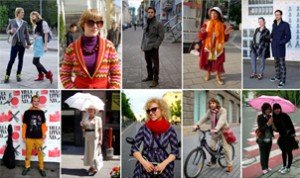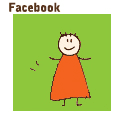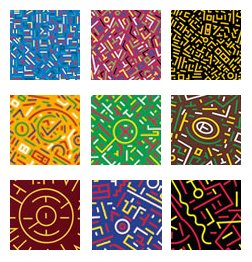Pažymėta: cooperation with local communities
Workshops and conferences »

Kviečiame dalyvauti kasmetiniame praktiniame forume “Co-urbanism”! Nuo miegamųjų rajonų gaivinimo ir socialaus dizaino iki hakatonų miestui ir dalyvaujamojo biudžeto firmavimo principū. Pranešėjai iš Berlyno, Vilniaus, Minsko, Kauno, Talino. Balandžio 26 d. Didžioji 5, 11-14.30! Registruokitės!
.
Annual practical forum in inclusive urban development “Co-urbanism” brings together experienced practitioners in participatory develppment of urban spaces to share their approaches and discussing the challenges. April 26, 11-14.30, Didžioji str 5, Vilnius. Please register!
Projects, Urban games & interventions »

We sum up initiatives, which our team launched in the wooden neighbourhood of Šnipiškės (Vilnius) in collaboration with local residents and invited artists in spring-summer-early autumn 2o13. We are grateful for your support and participation, which inspired us to do a lot of things. As most of community initiative we launch are sustainable, they will be continued in spring/summer 2o14! This of the initiative is a toolbox for a neighbourhood regeneration, and it is based on Laimikis.lt 6 years experience of working on revitalisation of public spaces.
daugiau »Workshops and conferences »
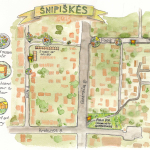
“Culture and sustainable development” forum in Vilnius has brought together the practitioners and researchers from the Baltic Sea region who focus on inclusive and sustainable developement of the region through cultural activities. It covered the topics of role of culture in promoting the country, the role of art and creativitiy in social innovations, revitalisation of the neighbourhoods, cultural enterpreneurship. Among the topics discussed the cases and methods of inclusive neighbourhood development through participatory arts, co-design (placemaking), and non-formal learning were presented on the base of Laimikis.lt work in the wooden Šnipiškės neighbourhood.
.
Forume “Kultūra ir darnus vystymas” pasidalinome principais ir metodais, kuriuos išvystėme, gaivindami viešąsias erdves per bendruomenines iniciatyvas (tai kas vadinama “vietodara”, t.y. placemaking). Kaip kūrybinės iniciatyvos ir neformalus švietimas gali tapti pozityvių socialinių pokyčių katalizatoriumi kaimynijose? Kaip formuojami pasitikėjimo tinklai kaimynijose? Kodėl verta kurti lokalias edukacines programas, skirtas kaimynijų vaikams? Pateikiu kelis pagrindinius principus ir prezentaciją.
Other »
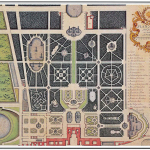
Co-urbanism map is a tool for collecting and analyzing the cases and methods in the field of participatory urbanism. The platform was developed as a part of Co-urbanism project, run by Minsk Urban Platform (Belarus) and Laimikis.lt (Lithuania). We see it not only as an analytical tool (as map is instrumental in identifying the types of urban problems, the active urban groups deal with, and types of solutions, which are developed in different regions), but also as a networking tool, helpful in exchanging the information on ongoing initiatives in the region. Therefore we invite every active urbanist to contribute into this growing map, by publishing the profiles of their initiatives and links to their sites.
.
Šis žemėlapis – pirmas bandymas imti kartografuoti regione plėtojamas iniciatyvas, analizuojant bendras miesto problemas, į kurias reaguoja aktyvūs miestiečiai ir priemones, kuriomis šios problemos yra sprendžiamos. Pirmieji pagal atvirą kvietimą surinkti iniciatyvų profailai buvo eksponuojami jungtinėje parodoje Minske, Urbanistinio festivalio metu (2o14 lapkritis 10-16), o šiuo metu žemėlapis pildomas toliau.
Studio »

“Co-urbanism: points of cooperation in the city” is an initiative, which aims to develop a model of effective communication and cooperation between citizens groups, city stakeholders, municipality and other governmental units – seeking to foster citizens participation in decision making processes. Co-urbanism event series embraces public formats, such as workshops, HubCamp, guest lectures, brainstorms, open discussions. But it also includes a research and think tank, focused on the methods of activism in the post-soviet region (starting with Lithuania and Belarus). The initiative brings together active residents, urban artivists, urbanists and architects, municipal workers, representatives of NGO sector and govermental organisations to share the experience of cross-sectorial interaction and to develop a toolbox for productive co-operative development of city spaces. Curator: Jekaterina Lavrinec (Laimikis.lt), in cooperation with Minsk Urban Platform. The event takes place in Vilnius on June 5, 6, 8, 2015.
.
“Co-urbanism: bendradarbiavimo jungtys mieste” iniciatyvos tikslas – iškristalizuoti skirtingų visuomenės interesų grupių ir institucijų sąveikos modelius ir efektyvios komunikacijos formas vystant miesto erdves, ir taip sudaryti palankias sąlygas miestiečių dalyvavimui vystant miesto erdves. Renginių ciklas apima: dirbtuves, HubCamp pranešimus, atviras diskusijas, smegenų šturmus ir dirbtuves, kurių metų skirtingų sričių atstovai kooperuojasi diskutuodami ir spręsdami miesto erdvių vystymo klausimus. Renginio iniciatorė: dr. Jekaterina Lavrinec (miesto žaidimų ir tyrimų laboratorija Laimikis.lt). Renginys organizuojamas bendradarbiaujant su Minsko urbanistine platforma.
Urban games & interventions »
How urban furniture could help in arranging open public space? How to combine usual needs of the neighbourhood residents with the possibility to tranform and develop local urban spaces? How to arrange dynamic and playful spaces in the neighbourhoods? Together with the interdisciplinary group of urban practitioners and active residents of various professions, we explore these questions by developing an open code urban furniture, which is going to be launched in several Vilnius neighbourhoods for further re-arrangements of local public spaces. Co-design workshop will take place through May 2015, and we invite you to join the creative process!
.
Kaip miesto baldai galėtų prisidėti formuojant arba stiprinant vietinius pasitikėjimo ir pagalbos tinklus, kurių pagrindu ir formuojasi miesto bendruomenės? Mes siekiame atsakyti į šį klausimą, kartu su interdisciplinine miesto praktikų komanda ir aktyviais Vilniaus kaimynijų atstovais įrengdami atviro kodo miesto baldų dirbtuves. Dirbtuvės vyks visą gegužę, o šio mėnesio antroje pusėje keli atviro kodo miesto baldų komplaktai bus įrengti keliose Vilniaus kaimynijose! Kviečiame dalyvauti!
Studio »
![Co-Design Workshops: Urban Furniture for Sharing | Atviro kodo baldai: ko-dizaino dirbtuvės [1]](https://laimikis.lt/archive/wp-content/themes/arthemia/scripts/timthumb.php?src=/wp-content/uploads/2015/04/Co-design-workshops-furniture-for-sharing-1024x1024.jpg&w=150&h=150&zc=1&q=100)
Together with local partners we launch series of co-design workshops, focusing on the development of shared places and scenarios of cooperation in the neighbourhoods. The initiative is open, and we search for cooperation both with urban practitioners, especially designers, and active representatives of the neighbourhoods. This Vilnius-based initiative is a part of a cluster of paralelly developed projects in Barcelona by radarq.net and in London by European Alternatives. The local partners will be anounced soon, and you still have a chance to join a creative team!
.
Laimėto granto dėka turime galimybę išvystyti atviro kodo miesto baldų sprendimus, orientuotus į kaimynijas, suburdami aktyvius kaimynijų atstovus, dizainerius ir kitus miesto praktikus. Kartu su vietiniais partneriais bus inicijuota serija dirbtuvių, skirtų atviro kodo baldams. Iniciatyva atvira, todėl visus besidominčius ir norinčius prisijungti! Ši iniciatyva yra dalis tinklo analogiškų projektų, skirtų socialiam dizainui, kaimynijų vystymui ir viešųjų erdvių gaivinimui, kuriuos vysto radarq.net (Barselona) bei European Alternatives (London). Šis klasteris leidžia apsikeisti metodais ir kartu generuoti patirtį vystant viešąsias erdves bei pasitikėjimo ryšius kaimynijose.
Studio »

A short guide to informal communication tools for communities and neighbourhoods was translated and published in Germany! Our group and our partners, who are involved in neighbourhoods management, communities development and informal education, explore forms of playful informal interaction in public spaces and neighbourhoods and share some of the cases, which we have developed in our work.
.
Kartu su kolegomis iš Berlyno, Paryžiaus ir Castelo de Vide surašėme trumpą praktinį vadovą į neformalios komunikacijos įrankius, kurie skatina miestiečių įsitraukimą į bendruomenines veiklas ir kuriuos išplėtojome vystydami kaimynystes arba gaivindami viešąsias erdves. Gidas toks paprastas, kad tinka ir vaikams :)
daugiau »Urban games & interventions »

In the wooden neighbourhood of Šnipiškės there is an urgent need for playgrounds, while there are a lot of empty and underused fields around. Laimikis.lt group developed a new type of multifunctional module playground “Letters”, which was tested and approved by youngsters in Šnipiškės neighborhood (Vilnius, Lithuania)! It was immediately occupied by children who didn’t wait for special invitation and tested all kinds of scenarios on it:)
.
Gegužės 30 d. vienoje iš Šnipiškių pievų buvo įrengta mobili modulinė žaidimo aikštelė! Tai naujojo tipo žaidimo aikštelė, kuri atlieka ir vietos orientyro (landmark) funkcijas. Bendruomeninių erdvių ir žaidimo aikštelių stoka yra viena dažniausiai šnipiškiečių minimų problemų – nors tuščių sklypų, virtusių pievomis, Šnipiškėse netrūksta. Todėl sukūrėme daugiafuncinę modulinę žaidimo aikštelę, kurios galimybes išbandė jaunieji šnipiškiečiai, jų tėvai ir seneliai. Prieš tai, gegužės 12 d., aikštelę sudarančios raidės buvo instaliuotos Europos aikštėje, siekiant atkreipti vilniečių dėmesį į medinio rajono miesto centre potencialą.
Urban games & interventions »

Seeking to take part in revitalization of Šnipiškės neighbourhood, a wooden district just next to skyscrapers, we apply communication tools and tactics, which we have already developed working with public spaces for last six years. We have started with mapping the potential of the area, including public spaces, meeting points, recreation, infrastructure, local networks. As we identified hot-spots, we arranged communication points: norice boards arenot only as a place for posting announcements, but as pretexts and places for meetings. While arranging “Neighbours Wall”, we were contacted by at least 10 local dwellers, who shared their stories and visions of improvement of the place.
.
Šnipiškės – unikalus žalias medinis rajonas su turtinga istorija, kuris galėtų tapti vilniečių traukos centru. Siekdami atgaivinti šį rajoną, pritaikome įrankius ir taktikas, kurias naudojame dirbdami su apleistomis viešosiomis erdvėmis, aikštėmis ir skverais. Mūsų pirmas žingsnis – vizualinės rajono taptybės paieškos ir “Kaimynų lentų” įrengimas. Mūsų grupė mato informacinės lentas ne tik ir ne tiek kaip plotą skelbimams, bet kaip susitikimo vietą ir progą aptarti savo gatvės problemas ir galimybes.
Urban games & interventions »
“Future city” and “Future food” are a series of public lectures and workshops, which bring together researchers from different fields (urban planning and architecture, urban activism and art). Our team was invited to lecture on citizen participation in urban planning and to arrange a workshop on tactical planning.
.
“Ateities miestas” ir “Ateities maistas” (lapkričio 3 d.!) – serija atvirų paskaitų ir dirbtuvių, kurias organizavo “Mokslas ir menas” Artotekoje. “Ateities miestui” skirtame renginyje Laimikio desantas atstovavo partizaninio miesto planavimo ir taktinio urbanizmo perspektyvai – šioms temoms ir skyrėme paskaitą bei praktinį užsiėmimą. Jūsų dėmesiui – taktiniam urbanizmui skirta prezentacija ir dirbtuvių rezultatai.
Projects »

Burbuliatorius (Bubble your city) is an annual and periodic open-source urban event, which takes place in different world cities on the same day, every second Monday, at 18.30 (local time) in summer and September. The aim of the event is to revitalize deactivated public spaces and to encourage citizens to explore the potential of public spaces by developing non-commercial scenarios of their use and sharing the local experience with other cities.
“Laimikis.lt” group has initiated this event in 2009, and more than 17 Lithuanian cities, as also London, Edinburgh, Aberdeen, Birmingham, …
daugiau »Studio »
In April we were invited to NECE workshop dedicated to WEB 2.0 tools in citizenship education, where we presented our concept of Web_0. Bringing online communication tools to the street, we seek to revise the concept of “social media”, proposing a wider understanding of what the media is. It is usual to reduce the notion of “social media” to the internet communication channels, but what is excluded then is a wide range of communication forms, which are being kept up by those groups of citizens, who do not use internet actively. We provide citizens with easy-to-use communication tools, combining traditional forms with Web 2.0 applications.
.
Jau prieš porą metų Login’e siūlėme įvertinti gatvės, kaip socialinio tinklo, potencialą. Tačiau apie jį vis dar užmirštama, svaigstant dėl internetinių socialinių tinklų galimybių. Pristatėme besivystantį “WEB_0” projektą NECE dirbtuvėse. Tikime, kad tokie įrankiai kaip “Gatvės blogas” ne tik pajėgūs suburti laikinas miestelėnų bendruomenes, bet gali būti naudingi, sprendžiant lokalių bendruomenių problemas.
Projects »
• Web 0 is an interactive street element, which could be installed anywhere on the streets, transforming the place into a playground.
• Web 0 yra dar vienas žaidybinis elementas, skatinantis praeivių interakciją. Tai vieta, kur kiekvienas praeivis gali palikti komentarą, piešinuką ir t.t
daugiau »


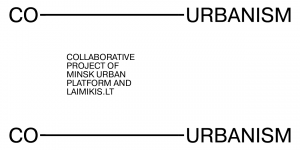
 2o15: "
2o15: "
